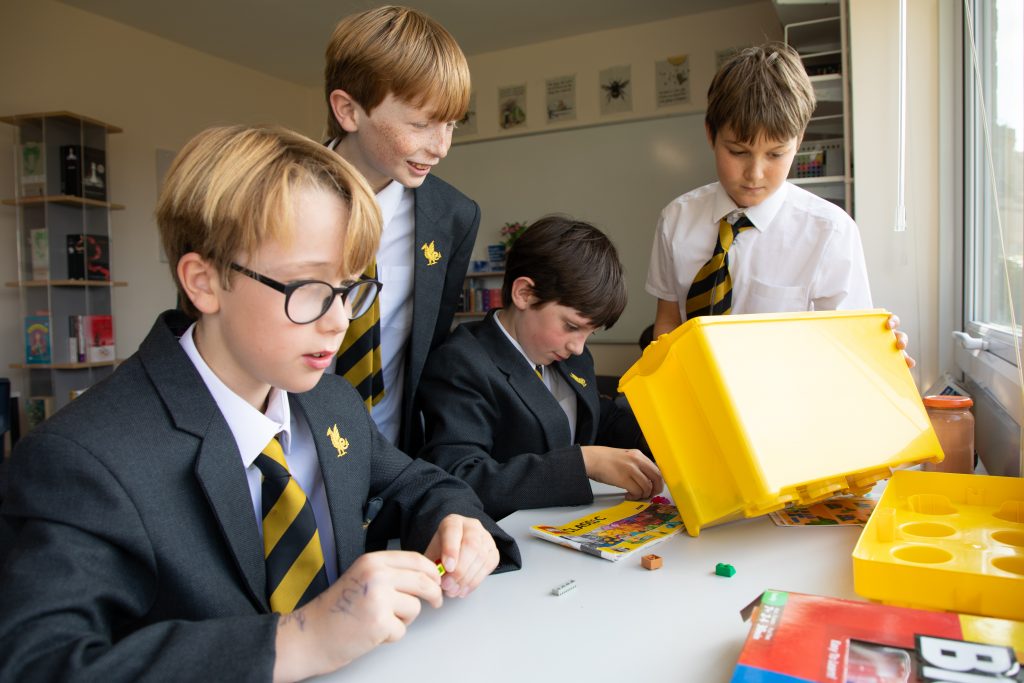The overarching aim of the Learning Support department is to enable pupils to fulfil their potential and access the full range of curricular and co-curricular activities on offer at Queen’s. The prep and senior school departments seek to build self-esteem in pupils and develop independence by providing effective strategies both to address any difficulties and to move on from them with confidence. Prep and senior school staff meet regularly to discuss pupils to ensure a smooth transition to senior school. Contact with other schools would also be made to discuss any new pupils requiring support so that appropriate provision could be put in place.
Children in the Prep School requiring intervention will come out of non-core subjects. This support may be individual, small group or provided in class. Some children have needs that are met through the high quality differentiated teaching they experience within the classroom. If it is felt that a child would benefit from learning support we meet with class teachers and parents to discuss the best provision moving forwards. Each pupil who has learning support will have a Pupil Passport. This document contains key information, strategies and targets for individual children and is shared with parents, staff and the child themselves. In the Prep School we like children to be involved with their learning and therefore their opinion is important to us. Interventions are regularly monitored as each term progresses to ensure that the support is still working well. We have bi-annual review meetings where parents are encouraged to attend to discuss the learning support that is in place. This meeting focuses on progress made, the child’s wellbeing and steps to move forward.
Pupils requiring intervention in Years 7-9 will initially come out of a non-linear subject to enable targeted intervention work to take place and then return to their normal curriculum once accelerated progress has been achieved. Older pupils may receive support during their study or co curricular periods. Some pupils may have needs that do not require additional support beyond the high quality differentiated teaching they receive inside the classroom. These pupils are monitored by teaching staff in liaison with our specialist staff. Key information on all of these pupils, alongside strategies to assist with their learning and wellbeing within the school is shared with academic and pastoral staff to enable a whole-school approach.
Pupils receiving academic or pastoral 1:1 intervention will have a bi-annual review meeting with a member of the Learning Support team to which parents are encouraged to attend. This meeting focuses upon the progress made towards personalised SMART targets and discusses the wellbeing of the child as a whole. The impact of interventions is the focal point of the meeting and pupils and parents are encouraged to contribute to amending future targets.
Pupils who require assessment for exam access arrangements are assessed by our specialist qualified staff no earlier than Year 9. Where pupils continue to meet the published criteria, those new to the school in the sixth form who have previously qualified for exam access arrangements will be allowed to roll forward their entitlement where the pupil still meets the published criteria. A new application will be processed for all pupils moving from GCSE to GCE qualifications.
As well as termly interventions we also offer courses of five 1:1 lessons to develop study and revision skills. These lessons are available at an additional cost. Alternatively, we offer small group study skills lessons in our co-curricular sessions.
Any parent who has concerns about their child’s progress is encouraged to talk to their child’s tutor who will then consult with academic and pastoral staff as well as Learning Support staff. The pastoral and academic departments in the school have strong links enabling us to take a holistic approach to each pupil’s development. We also endeavour to work closely with parents, carers and outside specialists so that all pupils are appropriately supported.






